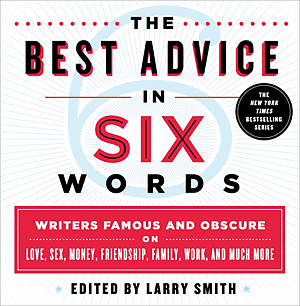While I remember enjoying 1978’s Dawn of the Dead as a kid in my own prepubescent way, I’m just not a zombie fan. Really not. Especially in recent years, with it becoming such a pop-culture craze. More on this in a moment. But first:
Last week we went out with friends to the two-hundred-million-dollar blockbuster World War Z. After the flick, all three friends — who are zombie fans — confessed that they were disappointed. I fell asleep myself, so their sentiments weren’t all that surprising to me. But they got me thinking:
World War Z was a lame flick, yes. Like 2005’s War of the Worlds, it’s jam-packed with too many coincidences, driven by stupid “rules” that seem to have been made up out of laziness. But the film itself is really just an expensive manifestation of an even larger problem:
ZOMBIES SUCK.
The whole genre is lame. Zombies make ludicrous villains, and nearly every horror/thriller story set in the zombie universe comes crumbling down thanks to an inherently weak premise.
You’ve probably heard the popular mantra: “Without conflict, you have no story.” One could also say that that without a *threat*, you’ve got no conflict. And without a *villain*, you’ve got no threat. Note here that the antagonistic villain need not be a person, or even a creature. It could be an earthquake, for instance. Or a towering inferno. But whatever your villain is, it must by definition contain a perceived threat.
And the zombie threat? It’s weak. And undeveloped.
Some zombie fans would argue that zombies do in fact present a threat. No different than the type of threat we get from natural disasters or wild animals. These people consider the zombie thriller as a sort of new rendition of the Man vs. Nature story.
But the zombie story (World War Z especially) is lacking a key element that all great Man vs. Nature stories have:
AN ELEMENT OF MAN’S OWN UNDOING.
In all great Man vs. Nature tales, the threat is largely a repercussion of Man’s poor choices. There’s an element of cringing and regret, as we realize that the threat could have been avoided, or at least minimized.
Take JAWS, for instance. It’s about a great white shark eating people, right? Well, not really. While the shark makes for a great villain and an obvious threat, it’s merely a result of MAN’S GREED. As the story begins, the shark comes swimming into town of Amity just before the tourist-filled July 4th weekend, which is the town’s most profitable time of the year. While the sheriff understandably wants to close down the beaches in the interest of public safety, the mayor and townspeople refuse to do so for fear of missing out on the July 4th gold rush. When this money-inspired decision backfires and the shark goes on its killing spree, the threat takes on a whole new meaning. It contains substance, and even provides a life lesson to be learned.
Another good Man vs. Nature story would be ALIEN, even if science-fiction. A commercial towing spaceship — owned and operated by a mega-corporation on Earth — is on a return trip with a load of mineral ore. When the crew discovers the eggs of an alien life form, they are ordered by corporate executives to bring a specimen back to Earth for analysis (and ultimately corporate gain). When Sigourney argues that doing so could endanger the lives of the crew, she’s overruled by corporate decisions. Greed. These corporate decisions backfire when the alien gets loose on the ship, predictably killing most of the crew. Again, as was the case in JAWS, it’s the (avoidable!) element of Man’s own undoing that gives the alien threat substance.
Now imagine both JAWS and ALIEN without that key element of Man’s own undoing, and you have a zombie movie. Mindless, pointless, totally-not-scary killing.
SIDENOTE: THE TERMINATOR and THE MATRIX, while not Man vs. Nature stories (they’re Man vs. Machine), are also great examples of Man’s own undoing. Both tales are driven by Man’s greed for intelligence and technological control. Everything backfired when the machines started thinking for themselves, and the apocalypse in each of those stories could have been avoided if Man had not made certain decisions. You might throw TITANIC in there as well.
A few more random thoughts to close out the rant:
Zombie horror is grossly inferior to other types of supernatural horror in that it lacks the element of CONSCIOUS INTENT. These sleepwalking villains have no AGENDA; it is a threatening agenda that makes other supernatural villains so inherently frightening. For instance:
The idea of an unrested soul haunting your world to take care of unfinished business and find justice is a scary concept. Not just because the ghost is *present*, but because it DESIRES SOMETHING, perhaps even from you. Same goes for the story of, say, demonic possession. It isn’t merely the idea of spiritual energy taking over your physical body that’s scary; what’s shit-your-pants scary is that the energy is doing so with a PURPOSE.
Zombie stories have none of those elements. Zombies are nothing more than unconscious pieces of meat walking around in hospital gowns looking for something to eat. No purpose, no agenda, not even a functioning brain. THAT’S NOT SCARY.
And the rules of the zombie world are absurdly undeveloped, without the rich details found in, say, traditional vampire and werewolf stories. Those classic stories have established rules, like the silver bullet, the garlic, the wooden stake through the heart.
Yet again, not so with zombie stories. The zombie world is so laughably arbitrary, with stupid tacked-on rules that never make sense. If you look closely, a zombie story is no different than, say, a story about an apocalypse where all the left-handed people on Earth suddenly start wandering around for no reason, trying to amputate our left pinkies with cheese graters. So, of course, we all must band together. Perhaps even in a mall. But how are we to survive? Well, here’s the thing: the lefties can hear sounds, which will attract them to us, so they’re eventually gonna find out where we’re hiding. We’re pretty screwed, and we need a plan. But wait! Aha! Alas, there’s actually a workaround: THEY CAN’T UNDERSTAND PIG LATIN…












Comments on this entry are closed.